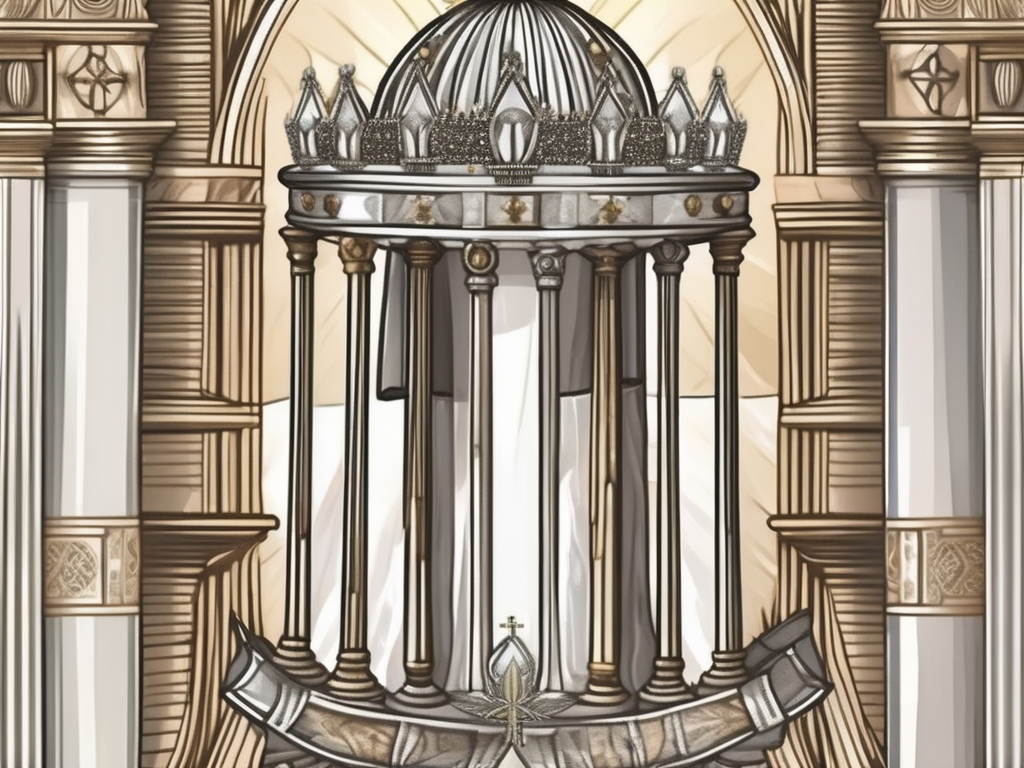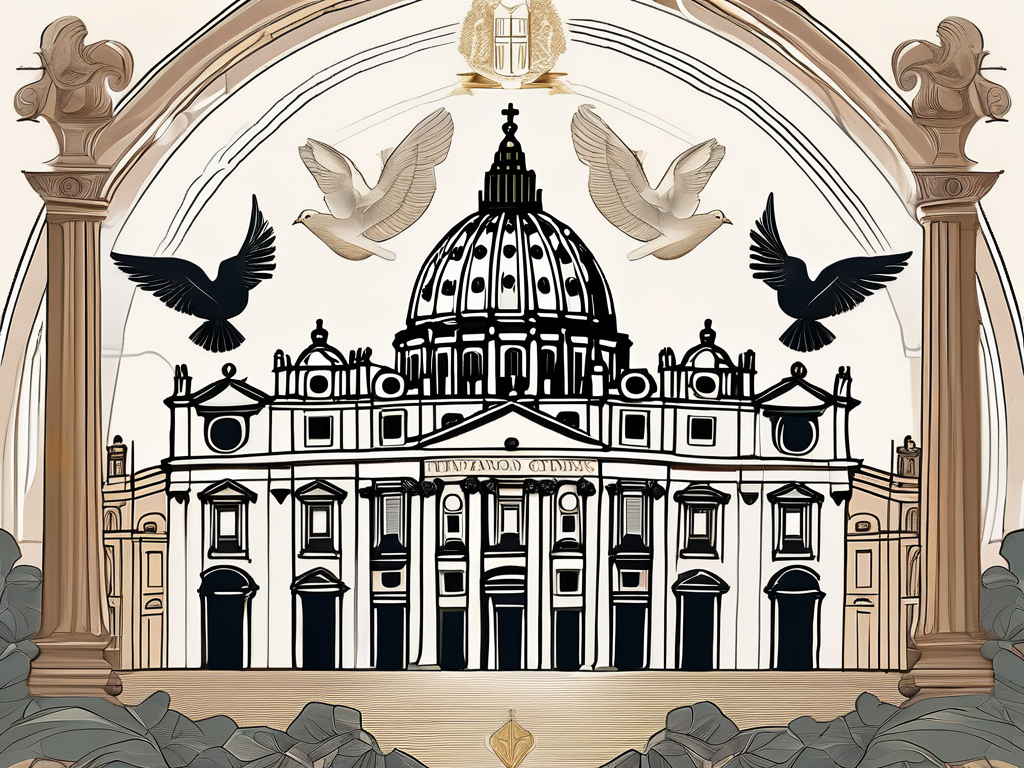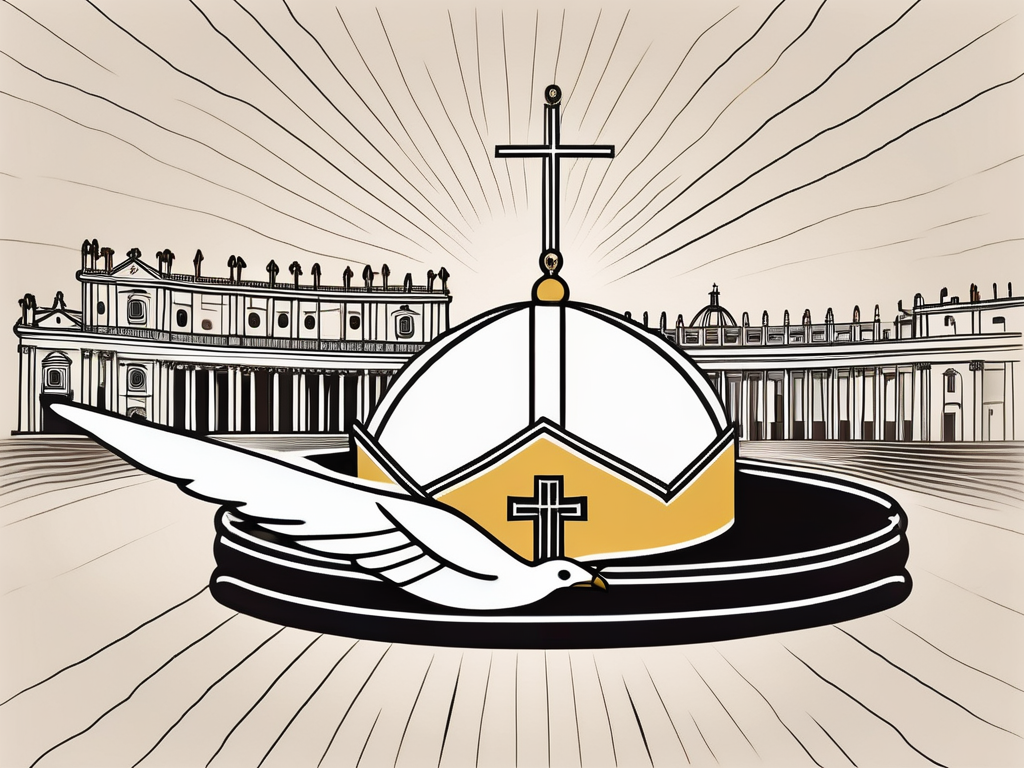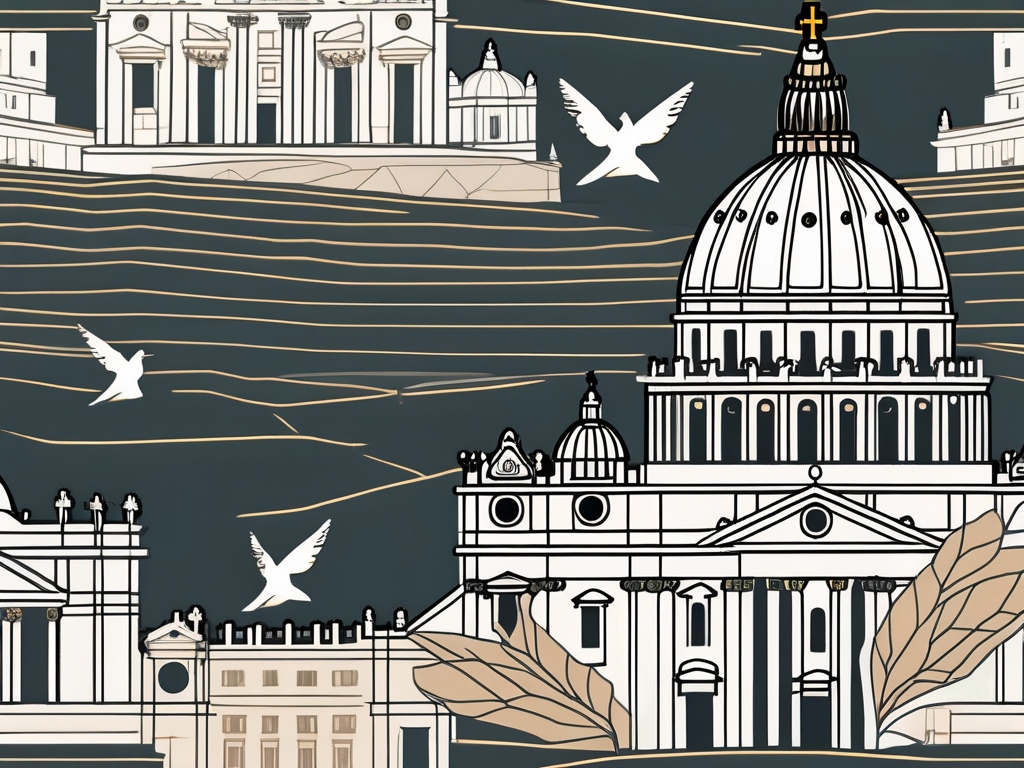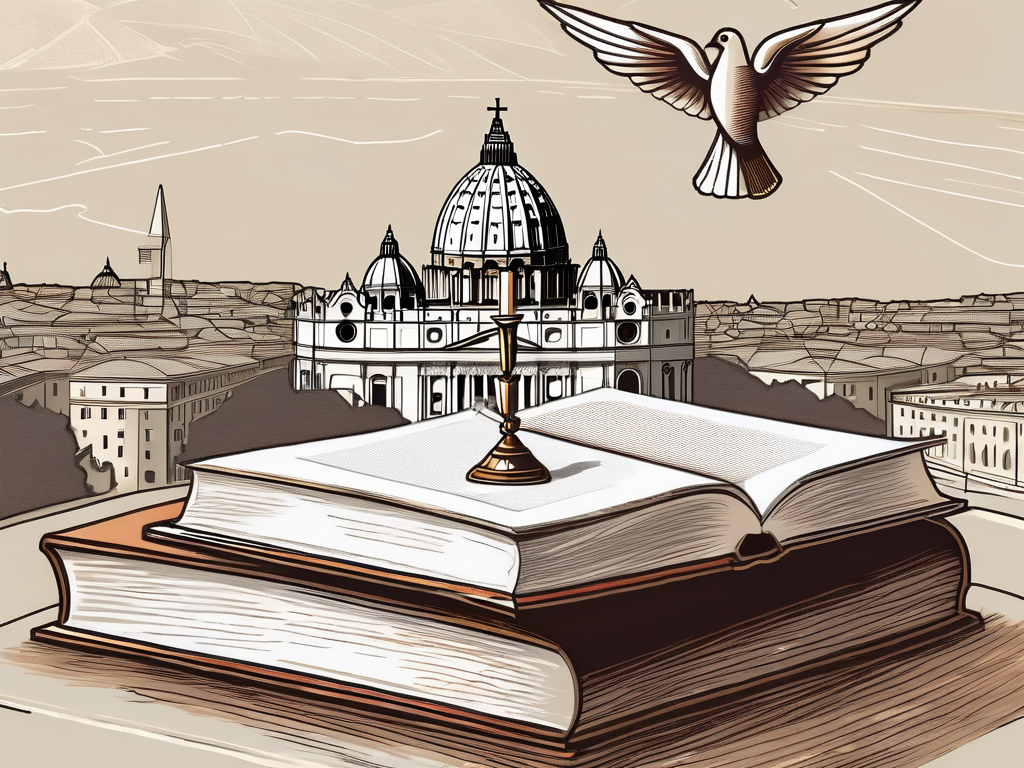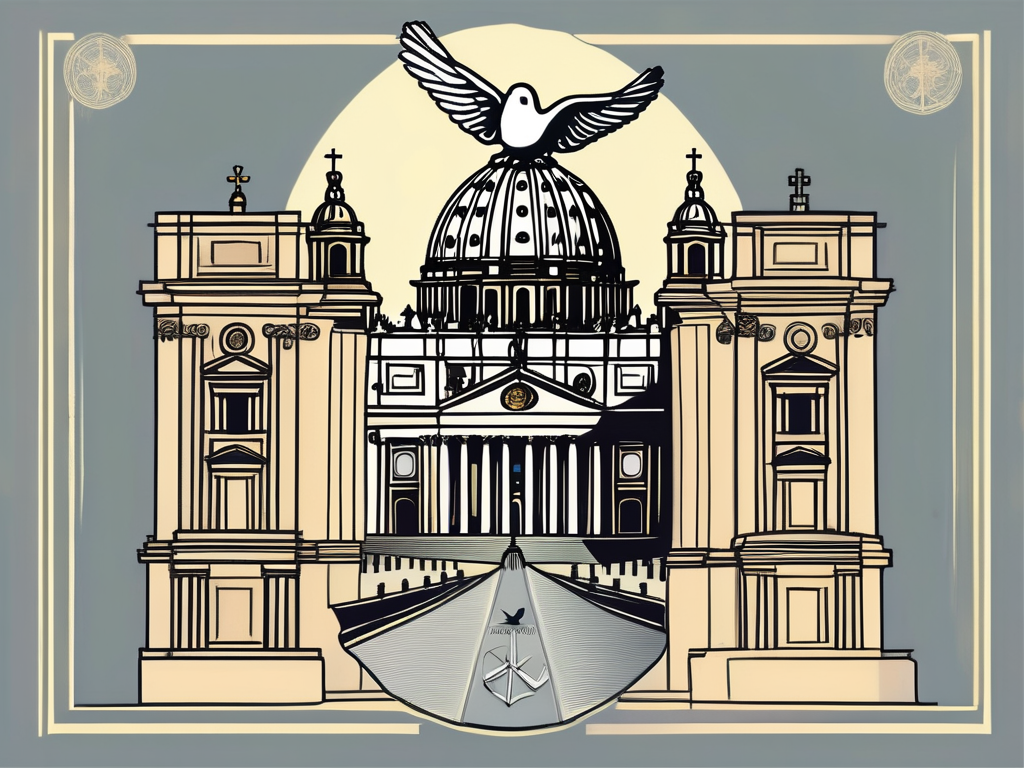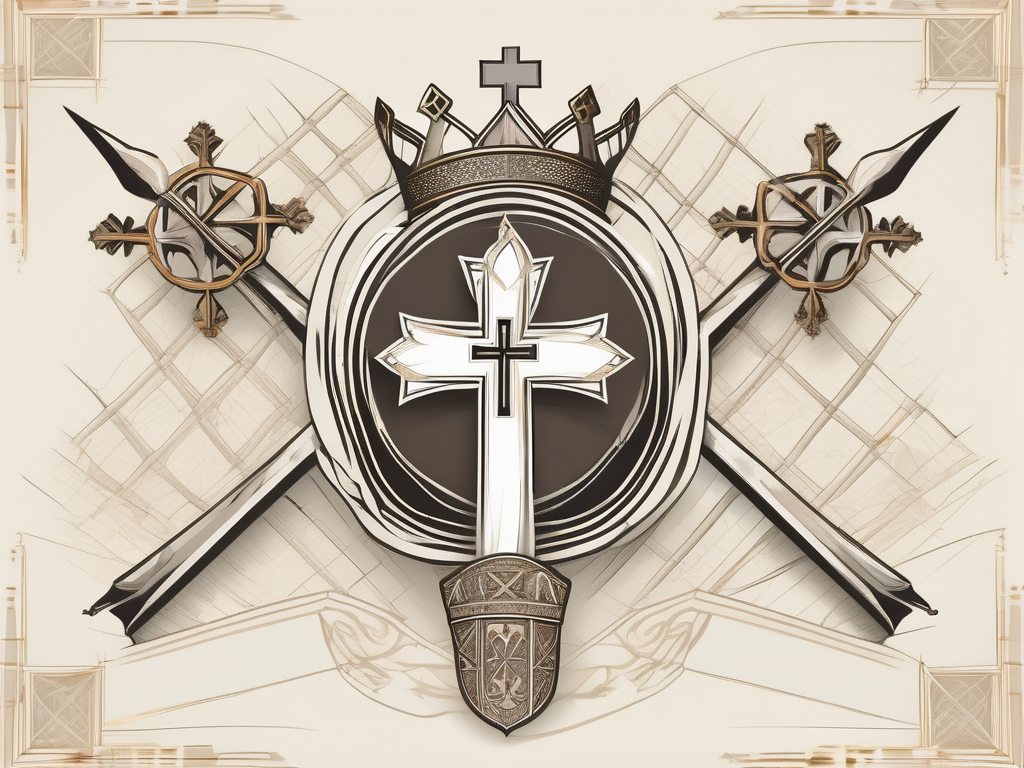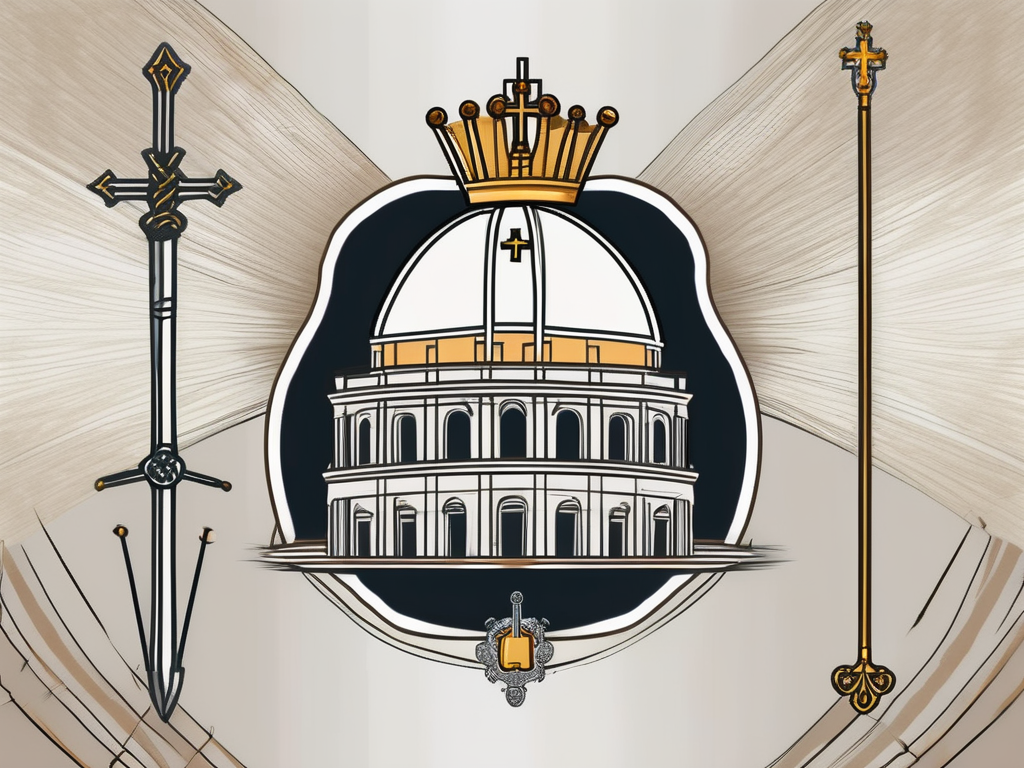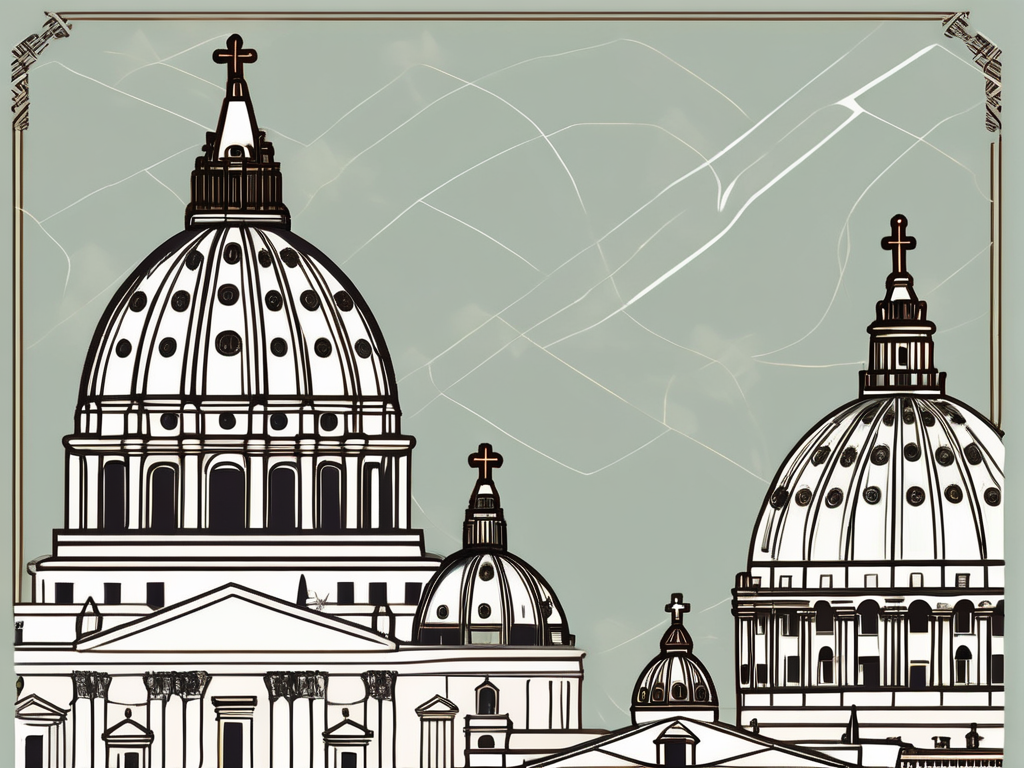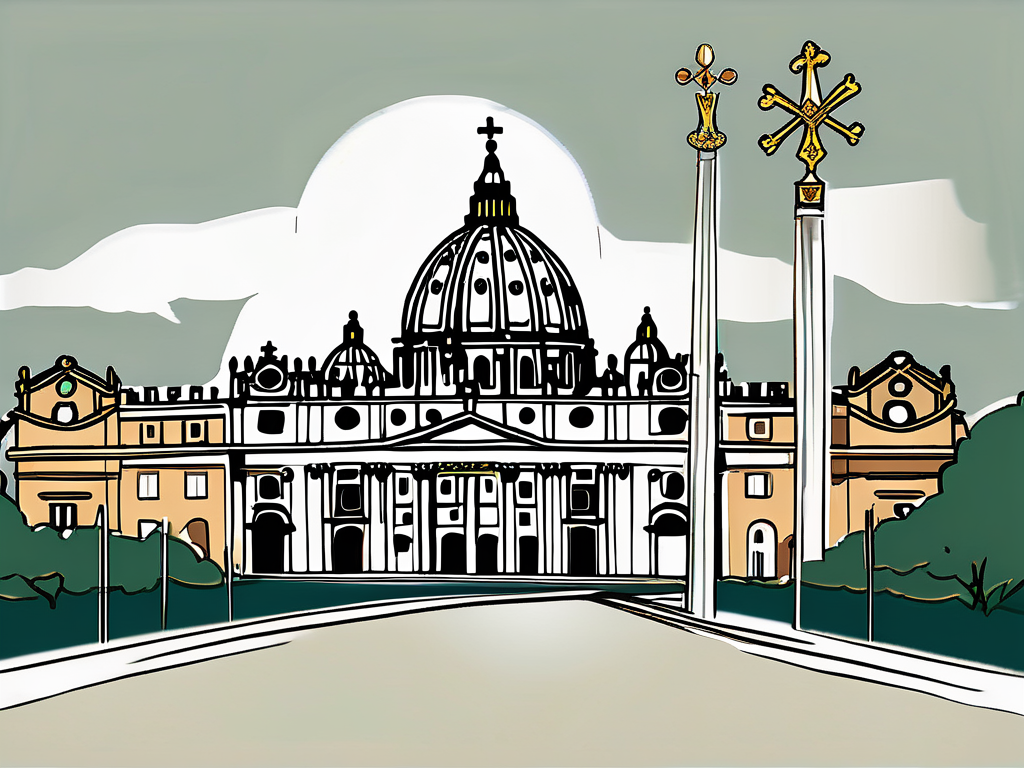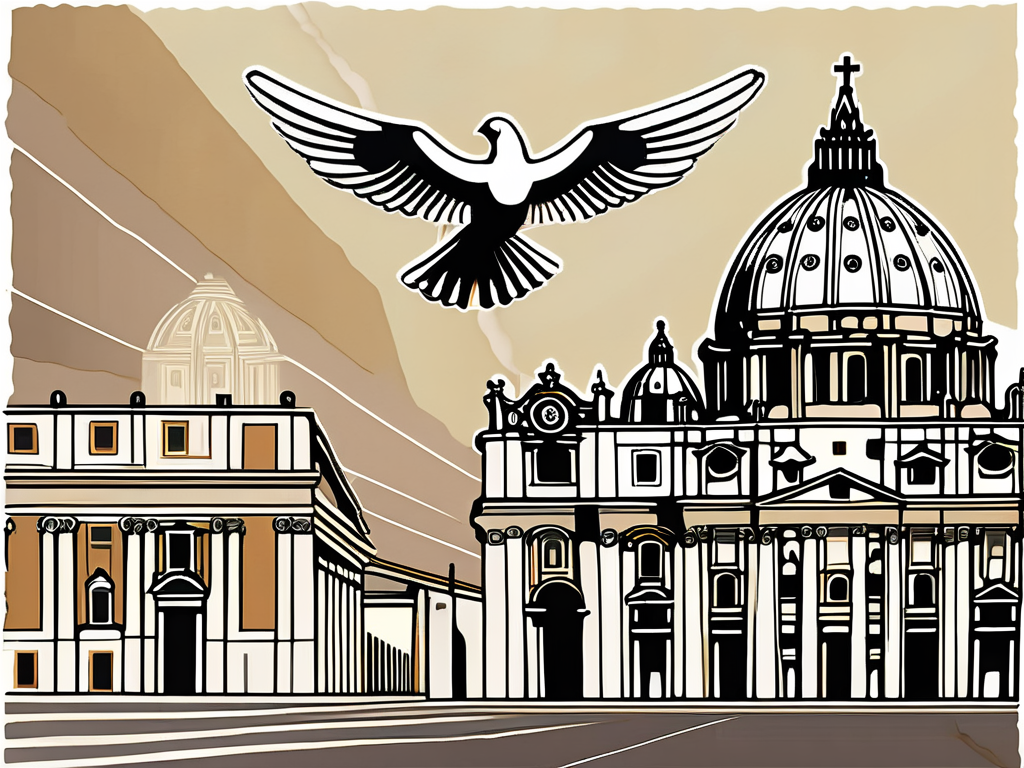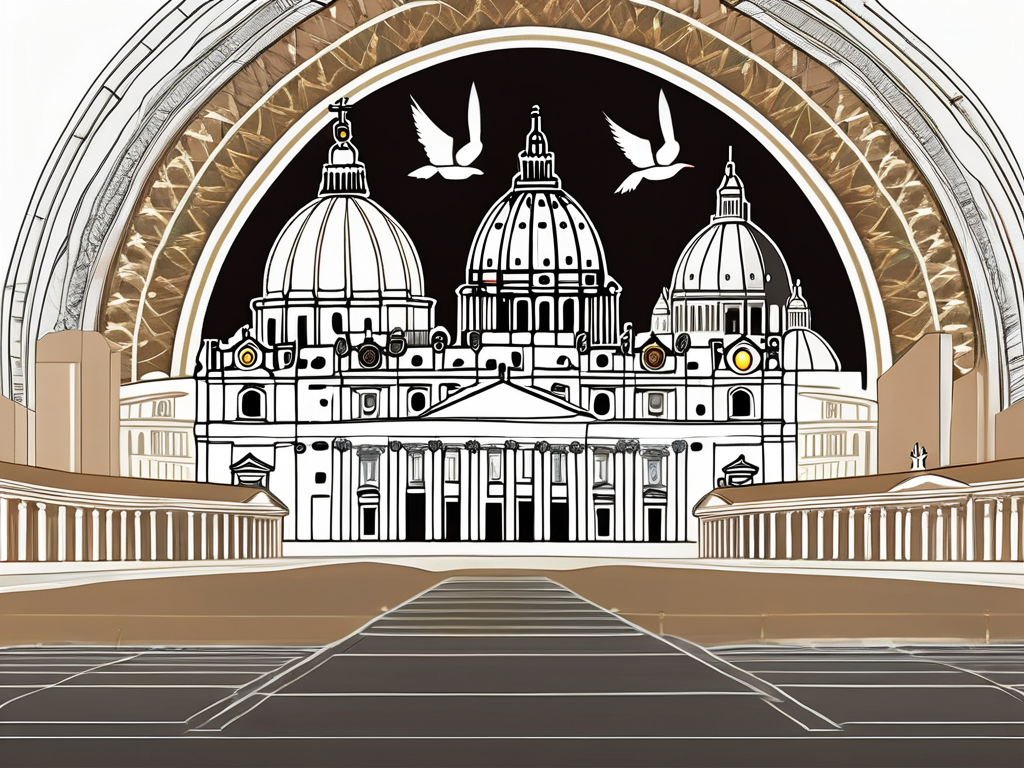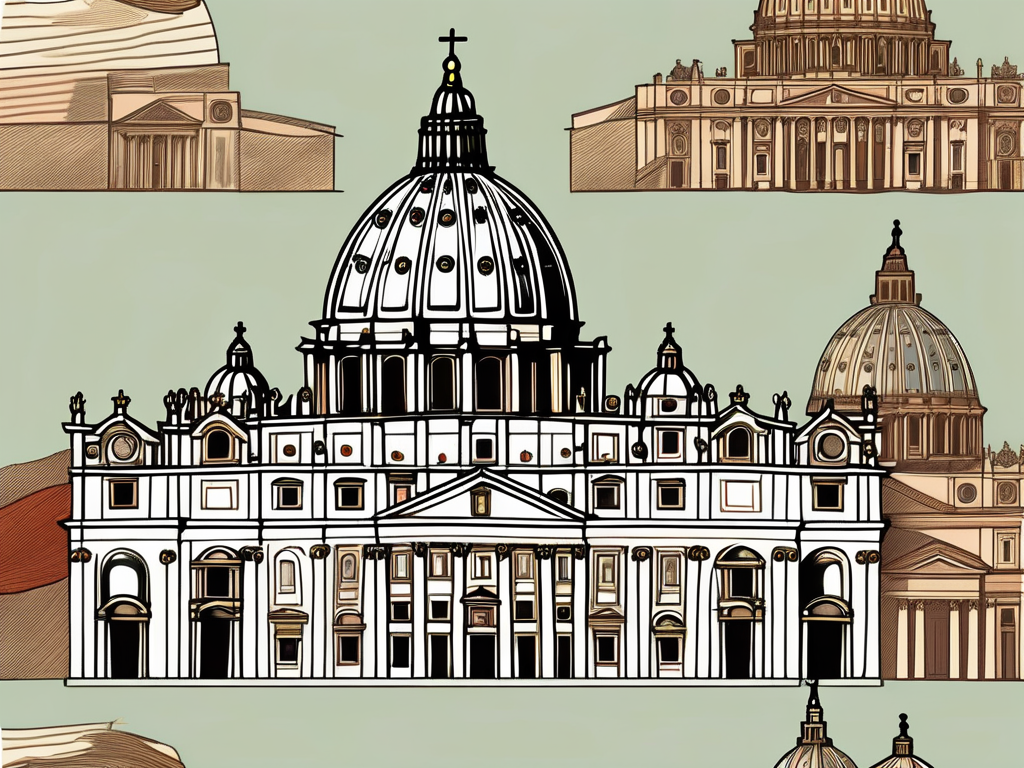Pope Gregory IX, born as Ugolino di Conti, left an indelible mark on the Catholic Church and European history. From his early life to his ascension to the papacy, Gregory’s impact was far-reaching and influential.
Early Life and Ascension to Papacy
Gregory IX, whose birth name was Ugolino di Conti, was born in Pisa, Italy, in the year 1143. He was born into a family of noble lineage, and his parents recognized his exceptional intelligence and keen interest in religious studies from a young age. Determined to provide him with the best education possible, they ensured that he received a comprehensive and rigorous education.
Gregory’s thirst for knowledge led him to pursue his studies in law at the prestigious University of Bologna. It was during his time at the university that his intellectual prowess truly shone. He not only excelled in his legal studies but also demonstrated a remarkable ability to apply his knowledge in practical situations. His expertise in the legal field soon caught the attention of influential figures within the Church, paving the way for his remarkable journey towards the highest seat in the Catholic Church – the papacy.
As Gregory delved deeper into his studies, he developed a profound understanding of canon law and its intricate complexities. His dedication and passion for the subject earned him the respect and admiration of his peers and mentors alike. He became known for his meticulous attention to detail and his ability to navigate the intricacies of legal doctrine.
Gregory’s reputation as a brilliant legal mind continued to grow, and his name became synonymous with legal expertise. This recognition opened doors for him, allowing him to establish connections with influential individuals within the Church hierarchy. These connections proved invaluable as Gregory embarked on his journey towards the papacy.
His ascent to the highest position within the Catholic Church was not solely based on his legal acumen. Gregory possessed a rare combination of intellectual brilliance, unwavering faith, and a deep commitment to the Church’s teachings. He demonstrated a genuine concern for the well-being of the faithful and a desire to address the challenges and issues facing the Church during his time.
Gregory’s unwavering dedication to his faith and his tireless efforts to uphold the principles of justice and righteousness within the Church earned him the respect and admiration of many. His reputation as a man of integrity and wisdom grew, and he became a trusted advisor to several influential figures within the Church.
It was this combination of intellectual prowess, legal expertise, and unwavering faith that ultimately led to Gregory’s ascension to the papacy. His journey from a young boy in Pisa to the highest seat in the Catholic Church was a testament to his exceptional abilities, his unyielding determination, and his unwavering commitment to the service of God and the Church.
Pope Gregory IX and the Canon Law
One of Pope Gregory IX’s most significant contributions was in the field of canon law. He played a crucial role in shaping the Church’s legal system and strengthening its authority.
Gregory’s most notable contribution was the compilation of the Decretals, a collection of papal pronouncements and decisions. This compilation would guide the Church’s legal practices for centuries to come, solidifying its influence and providing a foundation for the papal court.
As Pope Gregory IX embarked on the task of compiling the Decretals, he faced numerous challenges. The Church’s legal system was in a state of disarray, with conflicting opinions and practices prevailing among the clergy. Gregory recognized the urgent need for a unified and authoritative body of laws that would govern the Church’s affairs.
To accomplish this monumental task, Gregory assembled a team of legal scholars and theologians who meticulously examined and analyzed centuries of papal decrees, synodal decisions, and previous collections of canon law. Their collective efforts resulted in the creation of the Decretals, a comprehensive and systematic compilation that encompassed a wide range of legal matters, including ecclesiastical governance, sacraments, marriage, heresy, and the powers of the papacy.
The Decretals provided clear guidelines for the Church’s legal procedures, ensuring consistency and fairness in the administration of justice. It addressed issues such as the qualifications and responsibilities of bishops, the rights and duties of the clergy, the handling of disputes, and the punishment of offenses. By establishing a standardized legal framework, Gregory sought to strengthen the authority of the Church and maintain its unity.
Furthermore, the Decretals played a crucial role in defining the relationship between the Church and secular authorities. It asserted the supremacy of the papacy over temporal rulers and emphasized the Church’s jurisdiction in spiritual matters. This had significant implications for the balance of power between the Church and the state, shaping the course of European history.
Gregory’s efforts in canon law reform extended beyond the compilation of the Decretals. He also issued numerous papal bulls and decrees that clarified and expanded upon the principles laid out in the Decretals. These additional legal documents addressed emerging issues and provided further guidance to the Church’s clergy and faithful.
Overall, Pope Gregory IX’s work in the field of canon law had a profound and lasting impact on the Church. His compilation of the Decretals provided a solid foundation for the development of canon law, ensuring the Church’s legal system remained relevant and authoritative for centuries to come.
Crusades Under Pope Gregory IX
The Crusades were a pivotal part of Pope Gregory IX’s reign. He fervently supported the idea of reclaiming the Holy Land, uniting Christians against a common enemy.
Under Gregory’s guidance, the Fifth Crusade was launched. This crusade, which took place from 1217 to 1221, aimed to recapture Jerusalem from the Muslims. The pope’s efforts to rally support for the crusade were met with mixed reactions. While many European rulers and knights answered the call, others were hesitant to commit their resources to a distant and costly military campaign.
Despite the challenges, Pope Gregory IX remained determined to achieve his goal. He personally addressed the crusaders, urging them to fight with bravery and righteousness. The pope’s passionate speeches inspired many, instilling a sense of purpose and unity among the Christian forces.
However, the Fifth Crusade did not achieve its desired outcome of capturing Jerusalem. The crusaders managed to capture the city of Damietta in Egypt, but their progress was halted by a series of strategic mistakes and internal conflicts. Despite the setback, Pope Gregory IX’s efforts displayed his unwavering commitment to the cause.
Undeterred by the outcome of the Fifth Crusade, Pope Gregory IX continued his involvement in the crusading efforts. His most notable contribution came in the form of the Sixth Crusade, which took place from 1228 to 1229. This crusade was unique in that it relied heavily on diplomacy rather than military force.
Gregory’s diplomatic skills were put to the test as he negotiated with Muslim leaders, most notably Sultan Al-Kamil of Egypt. Through a series of intense negotiations, the pope was able to secure a treaty that granted Christians control over several key holy sites, including Jerusalem, Bethlehem, and Nazareth. This diplomatic success was seen as a significant achievement, as it allowed Christians to regain access to these sacred places without further bloodshed.
Pope Gregory IX’s involvement in the Crusades showcased his determination to unite Christians and reclaim the Holy Land. His unwavering support and diplomatic efforts left a lasting impact on the history of the Crusades, shaping the relationship between Christians and Muslims in the region for years to come.
The Inquisition and Heresy
Pope Gregory IX is also known for establishing the Papal Inquisition, a body responsible for combating heresy within the Church. This move aimed to maintain doctrinal purity and preserve the unity of the faith.
Throughout his papacy, Gregory dealt with numerous heretical movements, such as the Cathars and the Waldensians. His strong stance against heresy and tireless efforts to root it out earned him both admirers and critics.
The establishment of the Papal Inquisition marked a significant turning point in the history of the Catholic Church. As the influence of heretical movements began to spread across Europe, Pope Gregory IX recognized the urgent need to address these challenges head-on. The Papal Inquisition, under his leadership, became an institution dedicated to identifying, prosecuting, and eradicating heresy within the Church.
One of the most notable heretical movements that Pope Gregory IX confronted during his papacy was the Cathars. The Cathars, also known as the Albigensians, were a religious group that emerged in the 12th century in the Languedoc region of southern France. They held beliefs that were considered at odds with the teachings of the Catholic Church, particularly in regards to the nature of good and evil. Pope Gregory saw the Cathars as a threat to the unity and authority of the Church, and thus took decisive action to suppress their influence.
The Waldensians were another group that faced the scrutiny of the Papal Inquisition during Gregory’s papacy. The Waldensians, named after their founder Peter Waldo, were a lay religious movement that emerged in the 12th century. They emphasized poverty, simplicity, and the direct reading of the Bible. While initially tolerated by the Church, their growing popularity and deviation from established doctrine led Pope Gregory IX to take action against them.
Pope Gregory IX’s efforts to combat heresy were not without controversy. While some praised his unwavering commitment to preserving the integrity of the faith, others criticized the methods employed by the Inquisition. The Inquisitors, appointed by the Pope, were granted extensive powers to investigate, interrogate, and punish those suspected of heresy. This led to accusations of abuse of power and the violation of basic human rights.
Despite the criticisms, Pope Gregory IX remained steadfast in his belief that the Inquisition was necessary to protect the Church from the dangers of heresy. He saw it as his duty to safeguard the purity of the Catholic faith and ensure the unity of the Church. His unwavering determination and strong stance against heresy left a lasting impact on the Catholic Church and its approach to combating religious dissent.
Relationship with Secular Authorities
Pope Gregory IX’s relationship with secular authorities was complex and often contentious. His clashes with Emperor Frederick II of the Holy Roman Empire were particularly notable.
Frederick II’s desire for secular control clashed with Gregory’s vision of a strong papal authority. Their conflicts escalated, resulting in excommunications and political turmoil that left a lasting impact on European politics.
Despite the challenges he faced, Gregory managed to exert significant influence over secular rulers and shape the political landscape of his time.
As we reflect on the influential legacy of Pope Gregory IX, it is impossible to ignore the profound impact he had on the Catholic Church and European history. His contributions to the canonical law, involvement in the Crusades, establishment of the Papal Inquisition, and complex relationship with secular authorities have left an indelible mark that continues to shape our world today.
